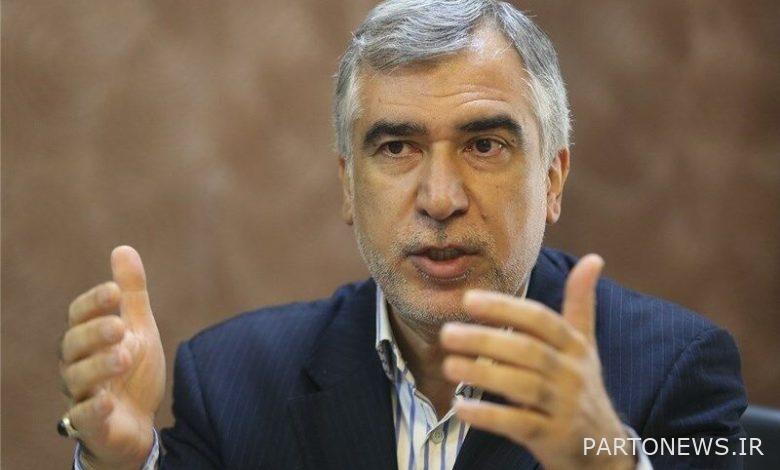The resolution of the Council of Governors is in the framework of soft war against Iran

On Saturday, in an interview with IRNA’s foreign policy reporter, Abolfazl Zahravand said about the resolution of the Council of Governors against Iran and the action of the Atomic Energy Organization: The draft resolution of the Council of Governors on Thursday was drafted under the direct supervision of the Americans, and that too in a situation where they claim that behind There are disturbances and currently they do not want to return to the JCPOA and have removed the JCPOA from their agenda.
This expert on international issues added: Therefore, the spirit of this resolution is political and within the framework of the soft war project that is currently on the agenda against Iran and the view and use of a tool by the Council of Governors, to which the Atomic Energy Organization gave a strong response to this statement.
Russia and China voted against the resolution of the Council of Governors
Zahravand clarified: The significant point in the approval of this resolution is the negative vote of Russia and China on this resolution, and the prospect of them wanting to take the next step in the form of referring the case to the Security Council is weak and has stopped for the time being because they know that if the case is referred to the Security Council Brod will be vetoed there.
He pointed out: Another issue that is raised here is that the issuance of the resolution of the Council of Governors is also instructive for the Islamic Republic of Iran, because it shows us that the path of the JCPOA is not correct and we should always appear before the Westerners with authority and full hands.
Zahravand continued: The Islamic Republic of Iran must make a decision about this issue once and for all, because the emergency situation they have created for us in the field of nuclear activities will only continue to our detriment.
The IAEA seeks to stop Iran’s peaceful nuclear activities and dismantle and destroy these capacities.
He said: The resolution of the Board of Governors shows that the existential philosophy of the International Atomic Energy Agency, based on its statute, is to help the growth and development of peaceful nuclear technology, but this task is off the agenda, and the agency, with its political approach, seeks to stop Iran’s peaceful nuclear activities. And even the removal and destruction of these capacities.
The international affairs expert reminded: We must not forget that during the Amano period and after the JCPOA agreement, the International Atomic Energy Agency officially accepted that all of Iran’s nuclear activities before 2003 and 2009 were completely peaceful and there was nothing on the sites about the issue of dispute. We did not, and the case is clear from the agency’s point of view, and the alleged studies or actions that they were looking for are ruled out, so we have to consider this issue.
Zahravand continued: Now the International Atomic Energy Agency has again put the discussion of possible military activities on the agenda, and on the pretext that it was designed by the Zionists, they want to carry out extraordinary inspections of their desired sites. This issue means keeping the ground open for spying and disrupting Iran’s nuclear activities, so this issue should be resolved once and for all with the International Atomic Energy Agency.
The unbalanced NPT treaty against the Islamic Republic of Iran
He clarified: The solution to this is that we either enjoy balanced rights with our obligations, or if the NPT treaty is to be applied against us in an unbalanced way, based on Article 10 of the NPT, this process is against the interests of security. It is national of the country, so as it is predicted in this article that if a country reaches this point, it can request withdrawal from NPT, let’s put the issue on the agenda.
The international affairs expert added: “No matter how far we have cooperated and come forward in this direction, it has only brought us negative, it has kept the pressure on us and imposed sanctions on us, and we have lost the right to remain a member of the NPT and to be a member of the agency that We should have enjoyed it, we have been deprived.
Zahravand said: This is the reason why we should protest against this issue and if it is going to be moved in this way, we should put Article 10 of the NPT on the agenda and deal with this issue seriously.
He stated: If a country like the Zionist regime, which is not a member of the NPT and has more than 200 nuclear warheads in a very small and limited geography, wants to create a platform for disturbance and disturbance in our rules with the International Atomic Energy Agency, it should be Objection be made.
Iran’s emphasis on a Middle East free of nuclear weapons
Iran’s former ambassador stated: Iran is one of the countries that has always emphasized on a “Middle East free of nuclear weapons”, while the International Atomic Energy Agency has not been able to visit and monitor the Dimona nuclear power plant.
Zahravand continued: Our other question is why Deputy Burrell and Rafael Grossi are traveling to Tel Aviv after their trip to Tehran, what is the relationship between Iran’s nuclear activity and the Zionist regime as a country that itself violates disarmament treaties and violations has he done
He pointed out: Therefore, we must state these matters very clearly and openly because the agency’s duty is purely technical and legal, but a heavy volume of inspections has always been applied to Iran, and the approaches have been mainly political and then a technical issue, which of course is a technical issue. It has also become a matter of espionage, and one of its results has been the assassination of our nuclear scientists.

